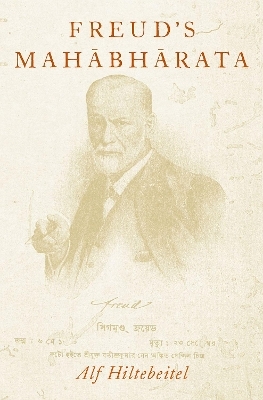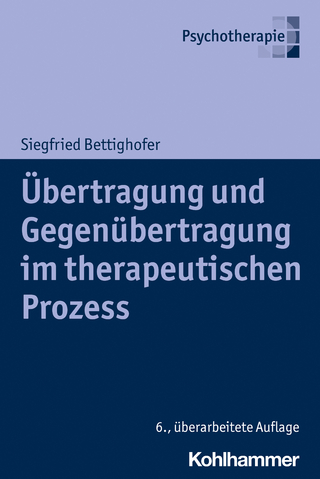
Freud's Mahābhārata
Oxford University Press Inc (Verlag)
978-0-19-087833-7 (ISBN)
Though Freud never overtly refers to the Mahābhārata, many of the Sanskrit epic's themes are illuminated by Freud's thought and, conversely, many incidents in the epic can be used to illustrate Freud's theories. In Freud's Mahābhārata, the companion volume to Freud's India, Alf Hiltebeitel offers what he calls a "pointillist introduction" to a new theory about the Mahābhārata based on Freud. Chapter 1 introduces the concept of the preoedipal, along with Freud's discussion of burial alive, ghosts and doubles, and castration anxiety, and looks at parallels with Indian theories of karma and reincarnation. In Chapter 2 Hiltebeitel draws on André Green's concept of "the dead mother," alive but dead to her child, to tell the epic's main story through the interactions between the peace-loving King Yudhisthira and his bellicose mother Kunti. Chapter 3 takes up three "dead mother" stories in the Mahābhārata's early books, all of them featuring Kunti, among a plethora of really dead or divine past mothers in the Pandava lineage. Next, Chapter 4 looks at Fernando Wulff Alonso's hypothesis that the Mahābhārata poets worked from Greek sources in modeling their stories. Hiltebeitel explores the epic's divine plan of the unburdening of the Earth, the goddess Earth, and its Greek counterpart in the Iliad's plan of Zeus. Girindrasekhar Bose's concept of the "Oedipus mother" is introduced in Chapter 5 through a discussion of Aravan, a minor figure throughout the Sanskrit epic tradition but one who looms in importance in the Draupadi cult and has a cult of his own, where he is called Kuttantavar. In both cults Aravan is worshiped for his self-mutilating sacrifice as a battle-opening offering to "mother" Kali, and he is worshipped in his own cult by Indian eunuchs or castrati called Aravanis in his honor. The book concludes with a new theory of the epic based on Freud's Moses and Monotheism, in which he argued that religious traditions deserve to be studied not only in what they say consciously about themselves, but in what they have registered unconsciously from past traumas, loss of memory, and the return of the repressed.
Alf Hiltebeitel is Professor Religion at George Washington University. He works mainly on the two Sanskrit epics, the Mahābhārata and Ramayana, and on the south Indian Draupadi cult, which worships the Mahabharata's leading heroine as the Goddess. He is a historian of religions who studies Hinduism with longstanding interests in Sigmund Freud and in the comparative study of Judaism.
Acknowledgments
Preface
List of Figures
1. Introduction: The Mahabharata and Freud's "The 'Uncanny"
2. A Short Introduction to Freud's Mahabharata through the Pandavas' Mother Kunti
3. Two Times Three Dead Mother Texts: Dead Mothers and Nascent Goddesses
4. Uncanny Domesticities: Nascent Goddesses in the Baseline Mahabharata
5. Kali and Aravan-Kuttantavar: Rethinking Bose's Oedipus Mother
6. Moses and Monotheism and the Mahabharata: Trauma, Loss of
Memory, and the Return of the Repressed
Bibliography
| Erscheinungsdatum | 22.09.2018 |
|---|---|
| Verlagsort | New York |
| Sprache | englisch |
| Maße | 239 x 160 mm |
| Gewicht | 599 g |
| Themenwelt | Geisteswissenschaften ► Psychologie ► Psychoanalyse / Tiefenpsychologie |
| Geisteswissenschaften ► Religion / Theologie ► Hinduismus | |
| ISBN-10 | 0-19-087833-9 / 0190878339 |
| ISBN-13 | 978-0-19-087833-7 / 9780190878337 |
| Zustand | Neuware |
| Informationen gemäß Produktsicherheitsverordnung (GPSR) | |
| Haben Sie eine Frage zum Produkt? |
aus dem Bereich


